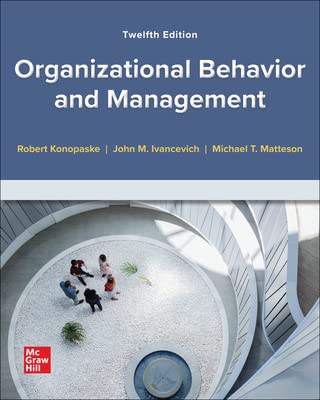Think of a reasonably important nonprogrammed decision you have made recently. Did you employ an approach similar
Question:
Think of a reasonably important nonprogrammed decision you have made recently. Did you employ an approach similar to the decision-making process outlined in Exhibit 14.2? How good was your decision? Could it have been improved by using the decision-making process? Explain.
Exhibit 14.2
The Rational Decision-Making Process
Exhibit 14.2 diagrams a rational decision-making process. The reader should not, however, interpret this out-line to mean that decision making is a fixed procedure. It is a sequential process rather than a series of steps. This sequence diagram enables us to examine each element in the normal progression that leads to a decision. Examination of Exhibit 14.2 reveals that it is more applicable to nonprogrammed decisions than to programmed decisions. Problems that occur infrequently, with a great deal of uncertainty surrounding the outcome, require that the manager utilize the entire process. For problems that occur frequently, however, this is not necessary. If a policy is established to handle such problems, it will not be necessary to develop and evaluate alternatives each time a similar problem arises.
Step by Step Answer:

Organizational Behavior And Management
ISBN: 9781265280741
12th Edition
Authors: Robert Konopaske , John Ivancevich , Michael Matteson





